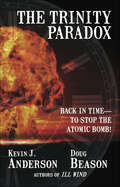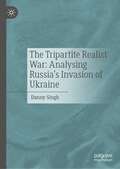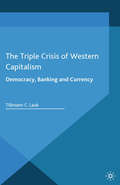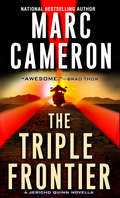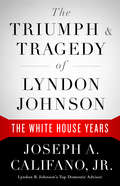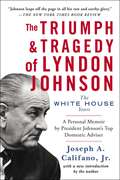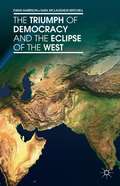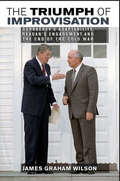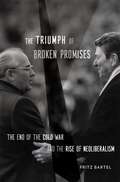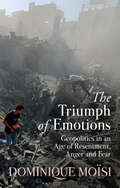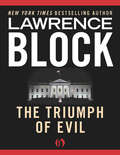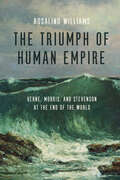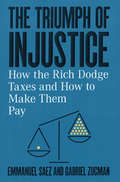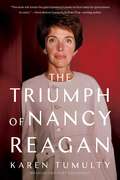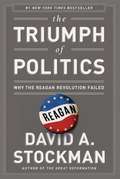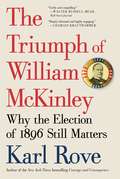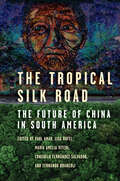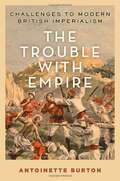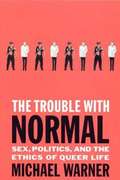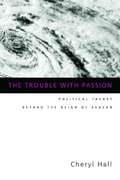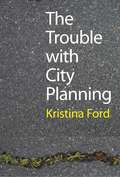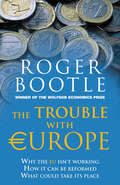- Table View
- List View
The Trinity Paradox
by Kevin J. Anderson Doug BeasonBy Kevin J. Anderson & Doug Beason. Activist Elizabeth Devane wished for an end to nuclear weapons. Surely, she thought, if they'd known what they were unleashing, the scientists of the Manhattan Project would never have created such a terrible instrument of destruction. But during a protest action, the unthinkable happened: a flash of light, a silent confusion, and Elizabeth awakes to find herself alone in a desolate desert arroyo ... and almost fifty years in the past. June 1944. Los Alamos, New Mexico. While the Allies battle in the Pacific and begin the Normandy invasion in Europe, Nazi Germany deviates from the timeline Elizabeth knows and uses its newfound nuclear arsenal against America. Somehow, someway, Elizabeth has been given the chance to put the genie back in the bottle ... yet could she—should she—attempt the greatest sabotage in history?
The Tripartite Realist War: Analysing Russia’s Invasion of Ukraine
by Danny SinghThe book offers a detailed analysis on Russia’s invasion of Ukraine. A book needs to be written on this to make sense, from a theoretical perspective, why this invasion has occurred and what the main actors are pursuing. The originality rests on testing main international relations theories: realism, liberalism and constructivism to the war that emerges with the practices and approaches during the Cold War to date from the North Atlantic Treaty Organisation (NATO), the Soviet Union (and now Russia) and Ukraine. The monograph commences with a historical overview of NATO and how it has engaged in expansionism policy to further contain Russia in contemporary international affairs with the accession of additional former Soviet states. This helps to explain the current Russian invasion of Ukraine that would attract great readership. The main argument presented rests on the pursuance of realist interests by NATO, Ukraine and Russia for containment, national security interests and as a response to the security dilemma respectively. This has served as the main catalyst of this conflict that has made diplomacy, international law and collective security measures problematic to implement.
The Triple Crisis of Western Capitalism: Democracy, Banking, and Currency
by T. LaukTillmann C. Lauk discusses law-making at the European level and argues that problems with EU legislation, banking regulation and currency debasement are due to a lack of democratic control. He insists on the need for radical reform both of banking and of international money and makes an important contribution to the debate on the future of finance.
The Triple Frontier (A Jericho Quinn Thriller)
by Marc CameronIn a zone of lawlessness, vengeance has no borders…An action-packed novella by the New York Times-bestselling author of Tom Clancy Power and Empire. It&’s called the Triple Frontier—the volatile border zone between Paraguay, Brazil, and Argentina, one of the most lawless and deadly regions in the world. It&’s a corrupt sanctuary where drug lords, Middle Eastern terrorists, slave traders, and dozens of other violent gangs operate with little or no interference from the law. For special agent Jericho Quinn, it&’s the crossroads of hell. Especially when his younger brother Bo gets caught in the fire. Enlisted to protect the son of an IT mogul on a South American trip, Bo and his crew disappear after being kidnapped by a ruthless cartel. Jericho amasses a cartel of his own to take on the most vicious criminals on earth—far from home, without U.S. government sanction, and without mercy. Mess with the bull, you get the horns—Jericho Quinn style… &“A formidable warrior readers will want to see more of.&”—Publishers Weekly
The Triple Helix: The Soul of Bioethics
by Lisa BellantoniLisa Bellantoni argues that contemporary bioethics divides into two logically incommensurable positions: a cult of rights, which identifies the worth of human life with our autonomy, and a cult of life, which identifies human worth with the possession of a soul, and thereby, of human dignity.
The Triumph & Tragedy of Lyndon Johnson
by Joseph A. Califano Jr.OC My effort here is to give firsthand testimony on the man and president I saw, OCywith bark off, OCO as he used to say when he wanted me to describe a difficult situation cold and true, with no punches pulled. OC The Lyndon Johnson I knew was brave and brutal, compassionate and cruel, incredibly intelligent and infuriatingly insensitive, with shrewd and uncanny instinct for the jugular of his allies and adversaries. He could be altruistic and petty, caring and crude, generous and petulant, bluntly honest and calculatingly deviousOCoall within the same few minutes. OCOOCoJoseph A. Califano, Jr. Joe CalifanoOCoLyndon JohnsonOCOs closest domestic adviser during the White House yearsOCohas created a remarkable presidential portrait, a frank, tough-minded memoir that reveals not only the singular personality of LBJ, but the rough grain of American politics. More than previous biographers, scholars, or reporters, CalifanoOCowho worked day and night in the trenches with LBJOCoshows us who Johnson really was and recreates life in the White House at the height of the turbulent sixties. aaLyndon Johnson was bigger than lifeOCoand no one who worked for him ever forgot it. Writing with perception and energy, Califano captures his mentorOCOs lively, irascible spirit as he puts us in the White House alongside LBJ during such momentous events as the assassination of Martin Luther King and the wrenching violence that followed, the assassination of Robert Kennedy, the 1968 Democratic Convention, and the national trauma surrounding the Vietnam War. We see Johnson manipulate the economy and the Supreme Court; confront race riots in Watts, Newark, and Detroit; and deal with the Arab-Israeli Six Day War. We witness his achievements in the areas of education, health care, consumer safety, civil rights, environmental protection, and the arts. And we watch him squander his credibility, as he doggedly wages both his warsOCothe one against poverty and the one in VietnamOCodetermined to prevent the blood-shed in Southeast Asia from spoiling his dream of a Great Society at home. a"The Triumph & Tragedy of Lyndon Johnson" is an intimate portrait of a president who towering ambition for his country and himself ultimately led to his decision to surrender the arena in which he fought so hard. Joe Califano has added uniquely to our understanding of LBJ, whose achievements and mistakes mirror his own complex and contradictory nature. a"
The Triumph & Tragedy of Lyndon Johnson: The White House Years
by Joseph A. Califano Jr.From Lyndon Johnson's closest domestic adviser during the White House years comes a book in which "Johnson leaps out of the pages in all his raw and earthy glory" (The New York Times Book Review) that's been called "a joy to read" (Stephen Ambrose, The Washington Post Book World).Califano takes us into the Oval Office as the decisions that irrevocably changed the United States were being crafted to create Johnson's ambitious Great Society. He shows us LBJ's commitment to economic and social revolution, and his willingness to do whatever it took to achieve his goals. Califano uncorks LBJ's legislative genius and reveals the political guile it took to pass the laws in civil rights, poverty, immigration reform, health, education, environmental protection, consumer protection, the arts, and communications. President Lyndon Johnson was bigger than life--and no one who worked for him or was subjected to the "Johnson treatment" ever forgot it. As Johnson's "Deputy President of Domestic Affairs" (The New York Times), Joseph A. Califano's unique relationship with the president greatly enriches our understanding of our thirty-sixth president, whose historical significance continues to be felt throughout every corner of America to this day. A no-holds-barred account of Johnson's presidency, The Triumph and Tragedy of Lyndon Johnson is an intimate portrait of a President whose towering ambition for his country and himself reshaped America--and ultimately led to his decision to withdraw from the political arena in which he fought so hard.son's presidency, The Triumph and Tragedy of Lyndon Johnson is an intimate portrait of a President whose towering ambition for his country and himself reshaped America--and ultimately led to his decision to withdraw from the political arena in which he fought so hard.
The Triumph Of Democracy And The Eclipse Of The West
by Sara Mclaughlin Mitchell Ewan HarrisonThis book explores the paradox of the worldwide spread of democracy and capitalism in an era of Western decline. The rest is overtaking the West as Samuel Huntington predicted, but because it is adopting Western institutions. The emerging global order offers unprecedented opportunities for the expansion of peace, prosperity, and freedom. Yet this is not the 'end of history', but the beginning of a post-Western future for the democratic project. The major conflicts of the future will occur between the established democracies of the West and emerging democracies in the developing world as they seek the benefits and recognition associated with membership of the democratic community. This 'clash of democratizations' will define world politics.
The Triumph Of Improvisation
by James Graham WilsonIn The Triumph of Improvisation, James Graham Wilson takes a long view of the end of the Cold War, from the Soviet invasion of Afghanistan in December 1979 to Operation Desert Storm in January 1991. Drawing on deep archival research and recently declassified papers, Wilson argues that adaptation, improvisation, and engagement by individuals in positions of power ended the specter of a nuclear holocaust. Amid ambivalence and uncertainty, Mikhail Gorbachev, Ronald Reagan, George Shultz, George H. W. Bush, and a host of other actors engaged with adversaries and adapted to a rapidly changing international environment and information age in which global capitalism recovered as command economies failed. Eschewing the notion of a coherent grand strategy to end the Cold War, Wilson paints a vivid portrait of how leaders made choices; some made poor choices while others reacted prudently, imaginatively, and courageously to events they did not foresee. A book about the burdens of responsibility, the obstacles of domestic politics, and the human qualities of leadership, The Triumph of Improvisation concludes with a chapter describing how George H. W. Bush oversaw the construction of a new configuration of power after the fall of the Berlin Wall, one that resolved the fundamental components of the Cold War on Washington's terms.
The Triumph of Broken Promises: The End of the Cold War and the Rise of Neoliberalism
by Fritz BartelA powerful case that the economic shocks of the 1970s hastened both the end of the Cold War and the rise of neoliberalism by forcing governments to impose austerity on their own people.Why did the Cold War come to a peaceful end? And why did neoliberal economics sweep across the world in the late twentieth century? In this pathbreaking study, Fritz Bartel argues that the answer to these questions is one and the same. The Cold War began as a competition between capitalist and communist governments to expand their social contracts as they raced to deliver their people a better life. But the economic shocks of the 1970s made promises of better living untenable on both sides of the Iron Curtain. Energy and financial markets placed immense pressure on governments to discipline their social contracts. Rather than make promises, political leaders were forced to break them.In a sweeping narrative, The Triumph of Broken Promises tells the story of how the pressure to break promises spurred the end of the Cold War. In the West, neoliberalism provided Western leaders like Ronald Reagan and Margaret Thatcher with the political and ideological tools to shut down industries, impose austerity, and favor the interests of capital over labor. But in Eastern Europe, revolutionaries like Lech Walesa in Poland resisted any attempt at imposing market discipline. Mikhail Gorbachev tried in vain to reform the Soviet system, but the necessary changes ultimately presented too great a challenge.Faced with imposing economic discipline antithetical to communist ideals, Soviet-style governments found their legitimacy irreparably damaged. But in the West, politicians could promote austerity as an antidote to the excesses of ideological opponents, setting the stage for the rise of the neoliberal global economy.
The Triumph of Emotions: Geopolitics in an Age of Resentment, Anger and Fear
by Dominique MoisiFifteen years ago, Dominique Moïsi famously argued that the world was increasingly shaped by a ‘clash of emotions’ as the old politics of ideology faded. Asia was hopeful; the West was fearful; and much of the rest of the world felt humiliated. Moïsi warned that this was a dangerously unpredictable world, that authorities had a responsibility to keep tempers cool. In this bold new book, Moïsi reports that they have failed: We live in a world where emotions have triumphed.One of the world’s most influential analysts of international affairs, Moïsi explains how and why the problems he identified in his path-breaking The Geopolitics of Emotion have deepened. More insidious emotions have been provoked by the rise of nationalism and populism, the retreat from globalization, the acceleration of climate change, and the dark sides of information technology. Raw emotions such as anger and even hatred have triumphed both in international and domestic politics—evident not just in leaders’ extreme rhetoric but now in open war in Ukraine. Against the backdrop of the US-China rivalry, a new Tripolar Order is emerging, featuring hope and resentment in the Global South, humiliation and anger in the Global East, and fear and resilience in the Global West.The Triumph of Emotions is an illuminating and passionately argued book for our fraught times.
The Triumph of Empire
by Michael KulikowskiMichael Kulikowski takes readers into the political heart of imperial Rome, beginning with the reign of Hadrian, who visited the farthest reaches of his domain and created stable frontiers, to the decades after Constantine the Great, who overhauled the government, introduced a new state religion, and founded a second Rome.
The Triumph of Evil
by Lawrence BlockAn assassin targets the political leaders of the United States, causing a domino effect that could bring down the government and alter our way of life forever Assassinations, political upheaval, student riots, and conservative rage. In the thick of the Cold War it was the perfect recipe for revolution, and it only took a gentle push to send a nation toppling into dictatorship. But what if it happened in the Untied States? Miles Dorn can make it so. A hired killer with no past and no future, he steps out of retirement and sets his sights on the political leaders holding America back from the brink. A Louisiana governor, a Detroit mayor, a bleeding-heart senator, and finally the vice president himself. When they fall, a tyrant will step forward and Dorn will disappear again. But as the death toll rises, he finds himself growing close to a civilian, a Summer of Love idealist who makes him question his path. Can he turn back before it's too late for him--and too late for America? This ebook features an illustrated biography of Lawrence Block, including rare photos and never-before-seen documents from his personal collection, and a new afterword written by the author.
The Triumph of Human Empire: Verne, Morris, and Stevenson at the End of the World
by Rosalind WilliamsIn the early 1600s, in a haunting tale titled New Atlantis, Sir Francis Bacon imagined the discovery of an uncharted island. This island was home to the descendants of the lost realm of Atlantis, who had organized themselves to seek "the knowledge of Causes, and secret motions of things; and the enlarging of the bounds of Human Empire, to the effecting of all things possible. " Bacon's make-believe island was not an empire in the usual sense, marked by territorial control; instead, it was the center of a vast general expansion of human knowledge and power. Rosalind Williams uses Bacon's island as a jumping-off point to explore the overarching historical event of our time: the rise and triumph of human empire, the apotheosis of the modern ambition to increase knowledge and power in order to achieve world domination. Confronting an intensely humanized world was a singular event of consciousness, which Williams explores through the lives and works of three writers of the late nineteenth century: Jules Verne, William Morris, and Robert Louis Stevenson. As the century drew to a close, these writers were unhappy with the direction in which their world seemed to be headed and worried that organized humanity would use knowledge and power for unworthy ends. In response, Williams shows, each engaged in a lifelong quest to make a home in the midst of human empire, to transcend it, and most of all to understand it. They accomplished this first by taking to the water: in life and in art, the transition from land to water offered them release from the condition of human domination. At the same time, each writer transformed his world by exploring the literary boundary between realism and romance. Williams shows how Verne, Morris, and Stevenson experimented with romance and fantasy and how these traditions allowed them to express their growing awareness of the need for a new relationship between humans and Earth. The Triumph of Human Empire shows that for these writers and their readers romance was an exceptionally powerful way of grappling with the political, technical, and environmental situations of modernity. As environmental consciousness rises in our time, along with evidence that our seeming control over nature is pathological and unpredictable, Williams's history is one that speaks very much to the present.
The Triumph of Injustice: How The Rich Dodge Taxes And How To Make Them Pay
by Gabriel Zucman Emmanuel SaezAmerica’s runaway inequality has an engine: our unjust tax system. Even as they became fabulously wealthy, the ultra-rich have had their taxes collapse to levels last seen in the 1920s. Meanwhile, working-class Americans have been asked to pay more. The Triumph of Injustice presents a forensic investigation into this dramatic transformation, written by two economists who revolutionized the study of inequality. Eschewing anecdotes and case studies, Emmanuel Saez and Gabriel Zucman offer a comprehensive view of America’s tax system, based on new statistics covering all taxes paid at all levels of government. Their conclusion? For the first time in more than a century, billionaires now pay lower tax rates than their secretaries. Blending history and cutting-edge economic analysis, and writing in lively and jargon-free prose, Saez and Zucman dissect the deliberate choices (and sins of indecision) that have brought us to today: the gradual exemption of capital owners; the surge of a new tax avoidance industry, and the spiral of tax competition among nations. With clarity and concision, they explain how America turned away from the most progressive tax system in history to embrace policies that only serve to compound the wealth of a few. But The Triumph of Injustice is much more than a laser-sharp analysis of one of the great political and intellectual failures of our time. Saez and Zucman propose a visionary, democratic, and practical reinvention of taxes, outlining reforms that can allow tax justice to triumph in today’s globalized world and democracy to prevail over concentrated wealth.
The Triumph of Nancy Reagan
by Karen TumultyThe definitive biography of the fiercely vigilant and politically astute First Lady who shaped one of the most consequential presidencies of the 20th century: Nancy Reagan.The made-in-Hollywood marriage of Ronald and Nancy Reagan is more than a love story—it&’s the partnership that made him president. Of the pair, Nancy was the one with the sharper instincts about people, the superior radar for trouble, and the keen sense of how to secure his place in history. The only person in the world to whom Ronald Reagan felt truly close, Nancy understood how to foster his strengths and compensate for his weaknesses. Neither timid nor apologetic about wielding her power, Nancy Reagan made herself a place in history. But that confidence took years to develop. Nancy&’s traumatic early childhood instilled in her a lifelong anxiety and a craving for security. Born into a broken marriage, she spent seven years yearning for the absent mother who abandoned her to pursue an acting career. When she met Ronnie, who had a difficult upbringing of his own, the two fractured halves became whole. And as Ronnie turned from acting to politics, she did too, helping build the scaffolding of his rise and cultivating the wealthy and powerful figures who would help pave his way. Not only was Nancy crucial in shaping Ronald&’s White House team and in softening her husband&’s rhetoric, she became an unseen force pushing her husband toward what she saw as his grandest purpose—to shake his image as a warmonger and leave behind a more peaceful world. This book explores the multifaceted character of Nancy Reagan and reveals new details surrounding the tumultuous presidency. The Washington Post columnist Karen Tumulty spent four years interviewing the people who knew this couple best and draws on overlooked archives, letters, memoirs, and White House records, compiling the most extensive biography of Nancy Reagan yet. From the AIDS epidemic to tensions with the Soviets and the war on drugs, this book shows how Nancy Reagan became one of the most influential First Ladies of the century.
The Triumph of Politics: Why the Reagan Revolution Failed
by David A. StockmanRegarding Stockman's years in the Reagan Administration.
The Triumph of Politics: Why the Reagan Revolution Failed
by David A. StockmanThe controversial bestseller on the failure of the Reagan Revolution, now back in print
The Triumph of William McKinley: Why the Election of 1896 Still Matters
by Karl RoveFrom New York Times bestselling author and political mastermind Karl Rove comes a fresh look at President William McKinley, whose 1896 campaign ended a bitter period of political gridlock and reformed and modernized his party, thereby creating a governing majority that dominated American politics for the next thirty-six years.<P><P> The 1896 political environment resembles that of today: A rapidly changing electorate affected by a growing immigrant population, an uncertain economy disrupted by new technologies, growing income inequality, and contentious issues the two parties could not resolve. McKinley found ways to address these challenges and win, which is why his campaign is so relevant to our politics now.<P> McKinley, a Civil War hero who preferred “The Major” above any other title he was given, changed the arc of American history by running the first truly modern presidential campaign. Knowing his party could only win if it grew beyond its base, he reached out to diverse ethnic groups, including openly seeking the endorsement of Catholic leaders and advocating for black voting rights. Running on the slogan “The People Against the Bosses,” McKinley also took on the machine men who dominated his own party. He deployed campaign tactics still used today, including targeting voters with the best available technology. Above all, he offered bold, controversial answers to the nation’s most pressing challenge—how to make a new, more global economy work for every American—and although this split his own party, he won the White House by sticking to his principles, defeating a charismatic champion of economic populism, William Jennings Bryan. <P> The 1896 election is a compelling drama in its own right, but McKinley’s strategies offer important lessons for both political parties today.
The Tropical Silk Road: The Future of China in South America
by Paul Amar, Lisa Rofel, María Amelia Viteri, Consuelo Fernández-Salvador, and Fernando BrancoliThis book captures an epochal juncture of two of the world's most transformative processes: the People's Republic of China's rapidly expanding sphere of influence across the global south and the disintegration of the Amazonian, Cerrado, and Andean biomes. The intersection of these two processes took another step in April 2020, when Chinese President Xi Jinping launched a "New Health Silk Road" agenda of aid and investment that would wind through South America, extending the Eurasian-African "Belt and Road Initiative" to a series of mine, port, energy, infrastructure, and agrobusiness megaprojects in the Latin American tropics. Through thirty short essays, this volume brings together an impressive array of contributors, from economists, anthropologists, and political scientists to Black, feminist, and Indigenous community organizers, Chinese stakeholders, environmental activists, and local journalists to offer a pathbreaking analysis of China's presence in South America. As cracks in the progressive legacy of the Pink Tide and the failures of ecocidal right-wing populisms shape new political economies and geopolitical possibilities, this book provides a grassroots-based account of a post-US centered world order, and an accompanying map of the stakes for South America that highlights emerging voices and forms of resistance.
The Trouble With Empire: Challenges To Modern British Imperialism
by Antoinette BurtonThe Trouble with Empire contends that dissent and disruption were constant features of imperial experience and that they should, therefore, drive narratives of the modern British imperial past. Moving across the one hundred years between the first Anglo-Afghan war and Gandhi's salt marches, the book tracks commonalities between different forms of resistance in order to understand how regimes of imperial security worked in practice. This emphasis on protest and struggle is intended not only to reveal indigenous agency but to illuminate the limits of imperial power, official and unofficial, as well. "Pax Britannica"-the conviction that peace was the dominant feature of modern British imperialism-remains the working presumption of most empire histories in the twenty-first century. The Trouble with Empire, in contrast, originates from skepticism about the ability of hegemons to rule unchallenged and about the capacity of imperial rule to finally and fully subdue those who contested it. The book follows various forms of dissent and disruption, both large and small, in three domains: the theater of war, the arena of market relations, and the realm of political order. Tracking how empire did and did not work via those who struggled against it recasts ways of measuring not simply imperial success or failure, but its very viability across the uneven terrain of daily power. The Trouble with Empire argues that empires are never finally or fully accomplished but are always in motion, subject to pressures from below as well as above. In an age of spectacular insurgency and counterinsurgency across many of the former possessions of Britain's global empire, such a genealogy of the forces that troubled imperial hegemony are needed now more than ever.
The Trouble With Normal: Sex, Politics, and the Ethics of Queer Life
by Michael WarnerMichael Warner, one of our most brilliant social critics, argues that gay marriage and other moves toward normalcy are bad not just for gays but for everyone. In place of sexual status quo, Warner offers a vision of true sexual autonomy that will forever change the way we think about sex, shame and identity.
The Trouble With Passion: Political Theory Beyond the Reign of Reason
by Cheryl HallPolitical theorists have long argued that passion has no place in the political realm where reason reigns supreme. But, is this dichotomy between reason and passion sustainable? Does it underestimate the indispensable role of passion in a fully democratic society? Drawing upon Plato, Rousseau, and contemporary feminist theorists, Cheryl Hall argues that passion is an essential component of a just political community and that the need to educate passion together with reason is paramount. Trouble with Passion provides a compelling defense of the crucial place of passion in politics.
The Trouble with City Planning: What New Orleans can Teach Us
by Kristina FordAfter the vast destruction wrought by Hurricane Katrina, New Orleans faces a rare chance to rebuild, with an unprecedented opportunity to plan what gets built. As the city's director of planning from 1992 until 2000, Kristina Ford is uniquely placed to use these opportunities as a springboard for an eye-opening discussion of the intransigent problems and promising possibilities facing city planners across the nation and beyond. InThe Trouble with City Planning,Ford argues that almost no part of our usual understanding of the phrase "city planning" is accurate: not our conception of the plan itself, nor our sense of what city planners do or who plans are made for or how planners determine what citizens want. Most important, our conventional understanding does not tell us how a plan affects what gets built in any city in America. Ford advances several planning innovations that, if adopted, could be crucial for restoring New Orleans, but also transformative wherever citizens are troubled by the results of their city's plan. This keenly intelligent book is destined to become a classic for planners and citizens alike.
The Trouble with Europe
by Roger BootleThe European Union was a brilliant stroke of political and economic engineering when it came into its current form, averting major wars and reducing social tensions among member states. But as Europe moves into the second decade of the twenty-first century, problems are multiplying-problems that arose due to the EU's very existence. In The Trouble with Europe, Roger Bootle, winner of the 2012 Wolfson Economics Prize, tackles the uncomfortable truth that the European Union might be going down-and could take the global economy with it.Bootle expertly outlines the factors that gave birth to the European union of the twentieth century, from the collective Euro-spirit that initiated a solution to the region's various problems and the subsequent unforeseen consequences of the compromises nations made in order to create a sustainable organization. Bootle examines how the euro has hindered independent actions of member nations, both economically and politically, before envisaging how a post-EU Europe might come about and how it would affect the United Kingdom, along with other member states and the world at large. Is a full dissolution the only answer or could the United Kingdom's withdrawal be a viable course of action? With EU elections looming in May 2014, The Trouble with Europe is a compelling read for anyone interested in the economic, political, and social future of the United Kingdom and all of Europe.Roger Bootle is an economist and a weekly columnist for the Daily Telegraph. He is currently the managing director of Capital Economics, an independent macroeconomic research consultancy. Bootle is the author of several books, including The Trouble with Markets and Money for Nothing.
